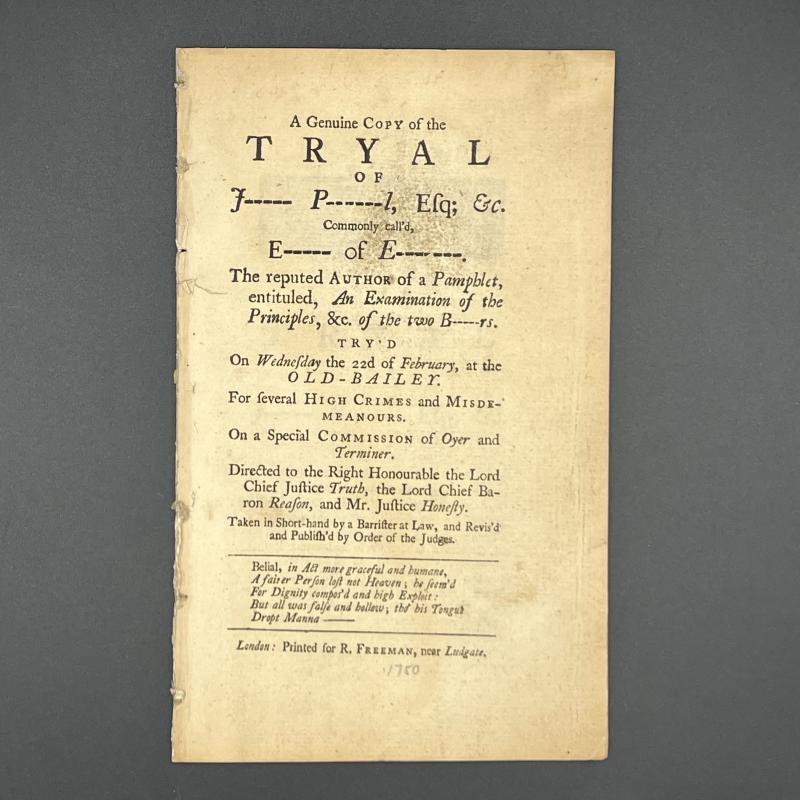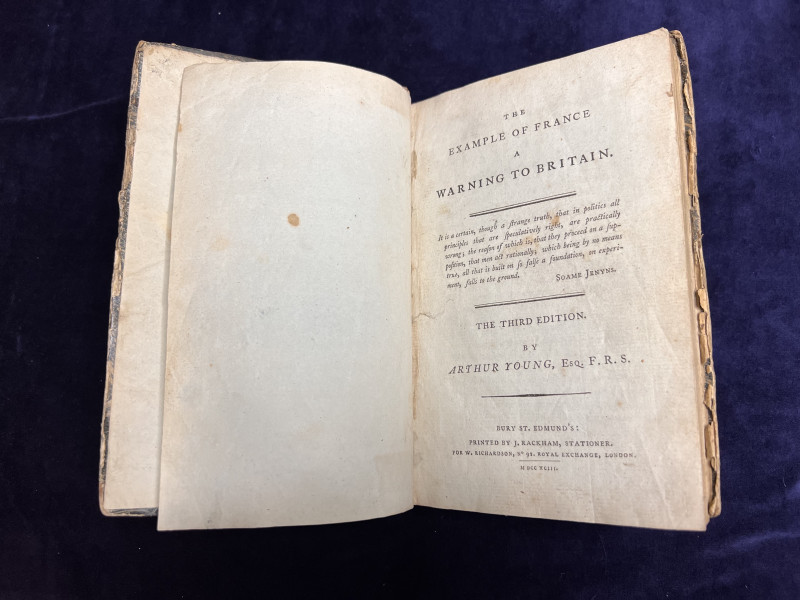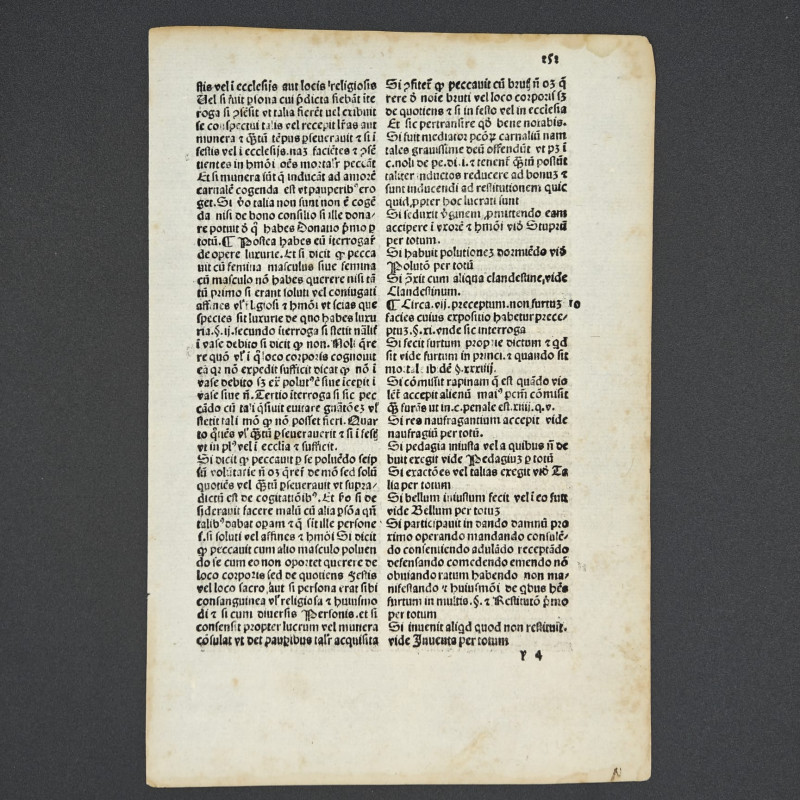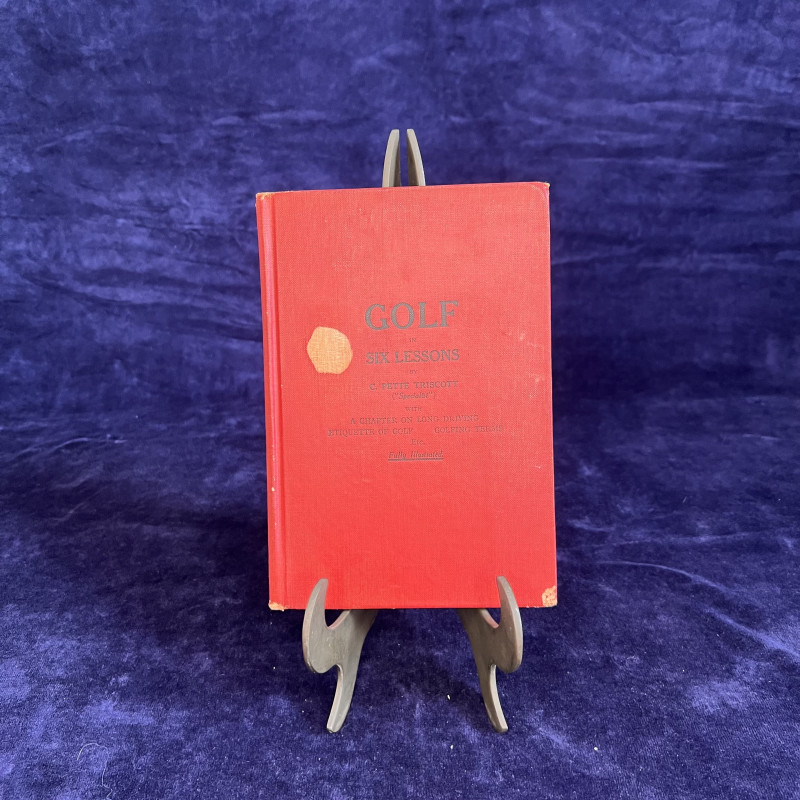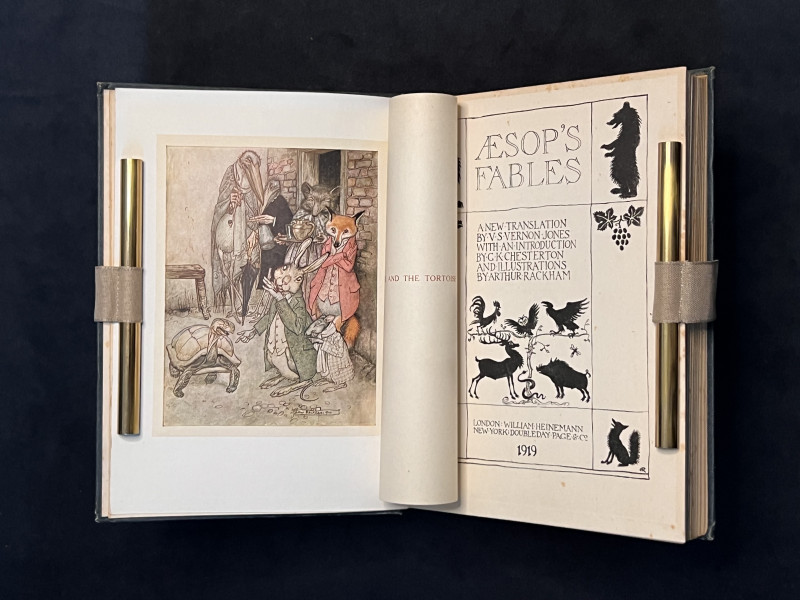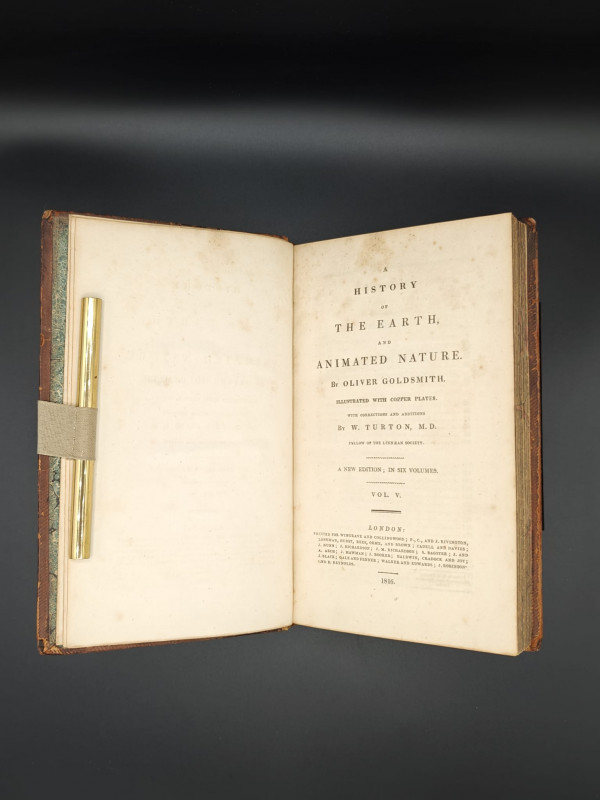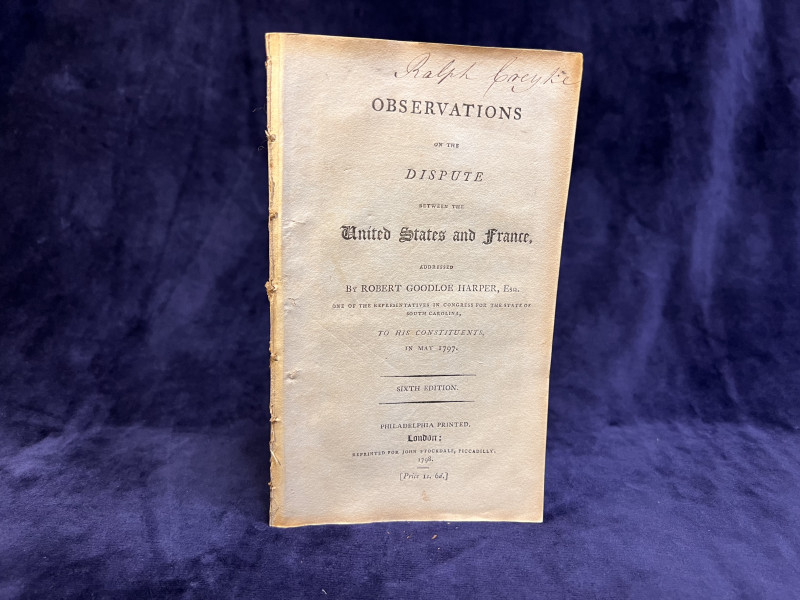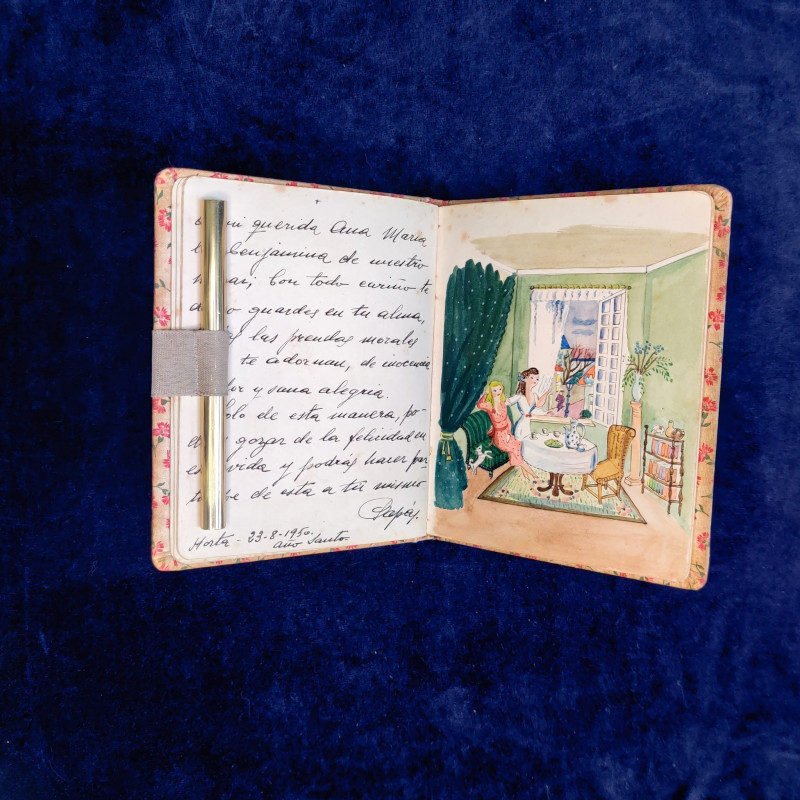de Obligatione rei ad confitendum factum suum.
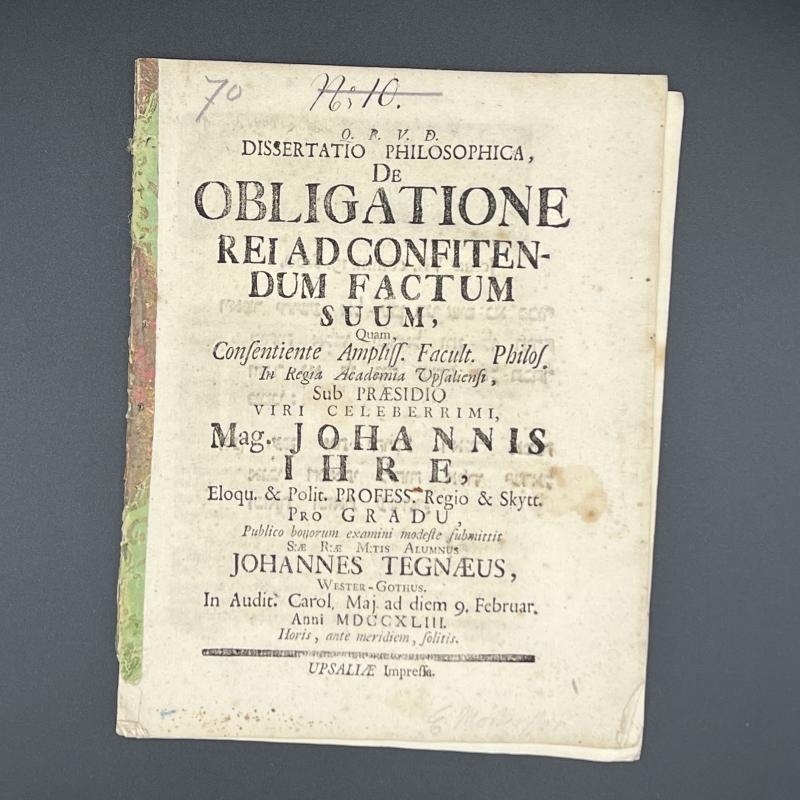
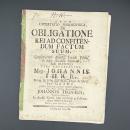
Book Description
Tegnaeus, Johannes. Dissertatio Philosophica de Obligatione rei ad confitendum factum suum. Upsalae Impressa, 9 Februar. Anni MDCCXLIII [1743].
(195 x 150 mm) pp. 16. Stab-stitch sewn dissertation submitted to Upsala University, supervised by Johannis Ihre. Metallic marbled paper used to reinforce spine. Endpeice ornamentation. Typeset in Latin, Greek, and Hebrew.
The dissertation "De Obligatione Rei Ad Confitendum Factum Suum" by Johannes Tegnaeus, directed by Johann Ihre and defended at Uppsala University in 1743, explores whether and under what circumstances an individual is morally and legally obligated to confess to a crime they have committed. It examines two central questions: (1) whether someone who knows themselves to be guilty of a wrongdoing is obliged to voluntarily report themselves to the authorities, and (2) whether a defendant, once formally accused, must admit guilt if the accusation is true. Tegnaeus grounds his argument in natural law, moral philosophy, and legal theory, emphasizing the importance of conscience, the integrity of civil society, and the limits of state power. He ultimately argues that a guilty party is indeed obligated to confess when their wrongdoing threatens the public good, but not in every circumstance—for instance, when repentance and restitution have already occurred privately and no public interest remains at stake. This dissertation is significant for its nuanced treatment of moral responsibility and legal obligation in Enlightenment-era Swedish jurisprudence, reflecting broader European debates on justice, punishment, and the role of confession in criminal proceedings.
Johannis Ihre (1707–1780) was a pioneering Swedish philologist and professor at Uppsala University, best known for his foundational work in comparative linguistics. He was the first to observe the Germanic sound shift later formalized as Grimm’s Law and played a crucial role in identifying the Codex Argenteus as Wulfila’s Gothic Bible. His major works include Glossarium Suiogothicum (1769), a groundbreaking etymological dictionary of Old Swedish, and Scripta versionem Ulphilanam et linguam Moeso-Gothicam illustrantia (1773), a philological analysis of the Gothic language and biblical texts. A central figure in 18th-century linguistic scholarship, Ihre laid the groundwork for later scholars like Rasmus Rask and Jacob Grimm, establishing himself as a foundational voice in Germanic historical linguistics.
Author
Tegnaeus, Johannes
Date
1743
Publisher
Upsalae Impressa
Friends of the PBFA
For £10 get free entry to our fairs, updates from the PBFA and more.
Please email info@pbfa.org for more information
